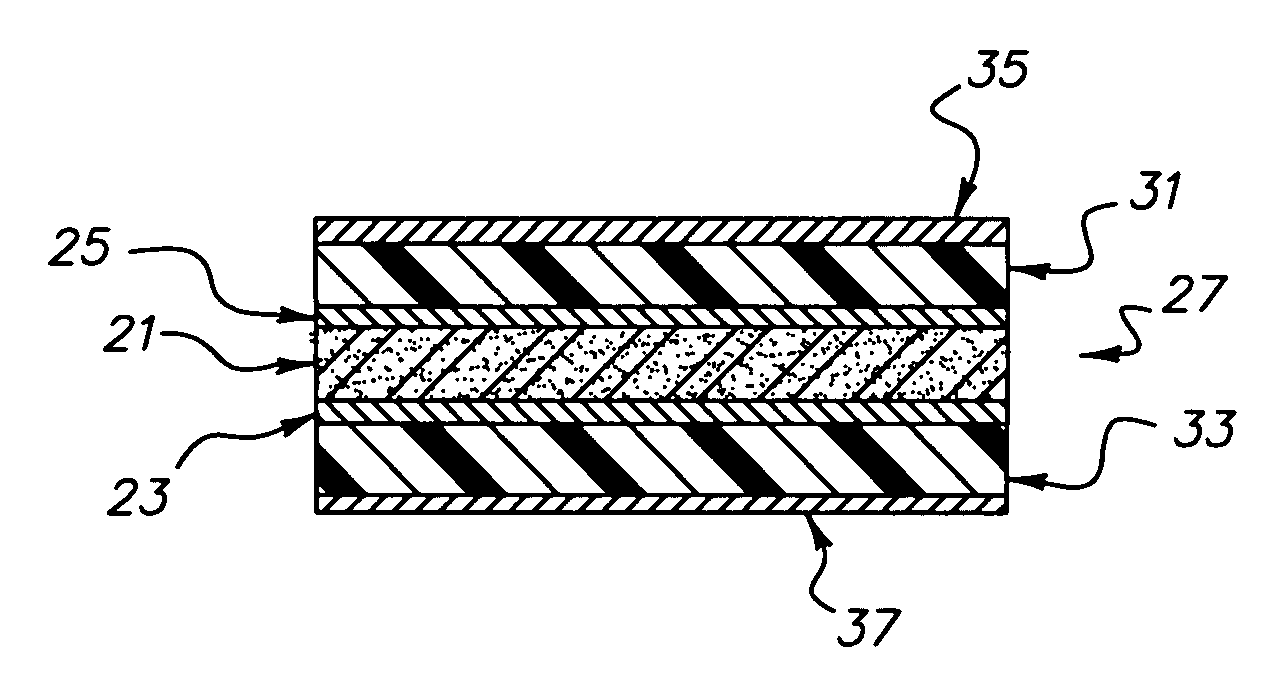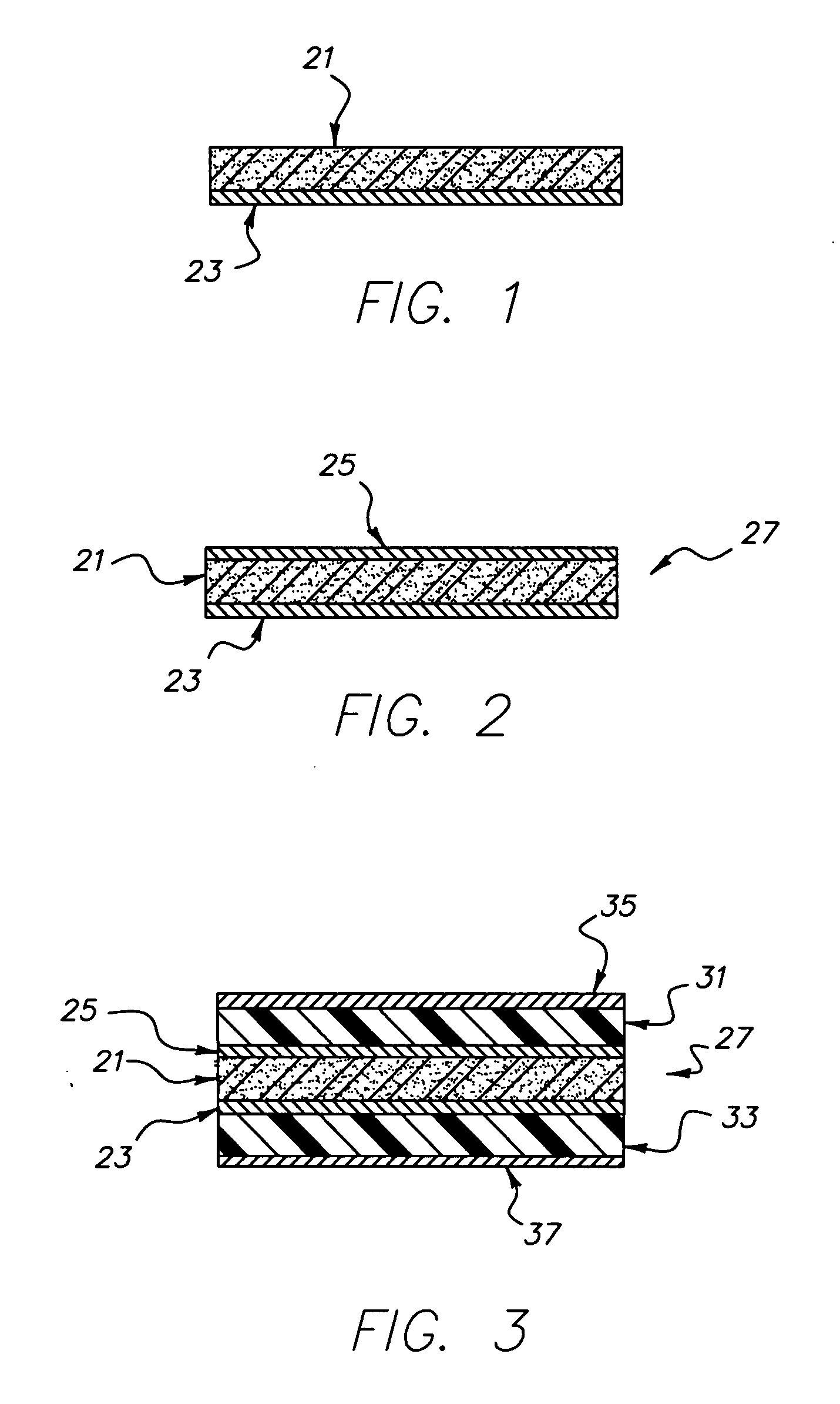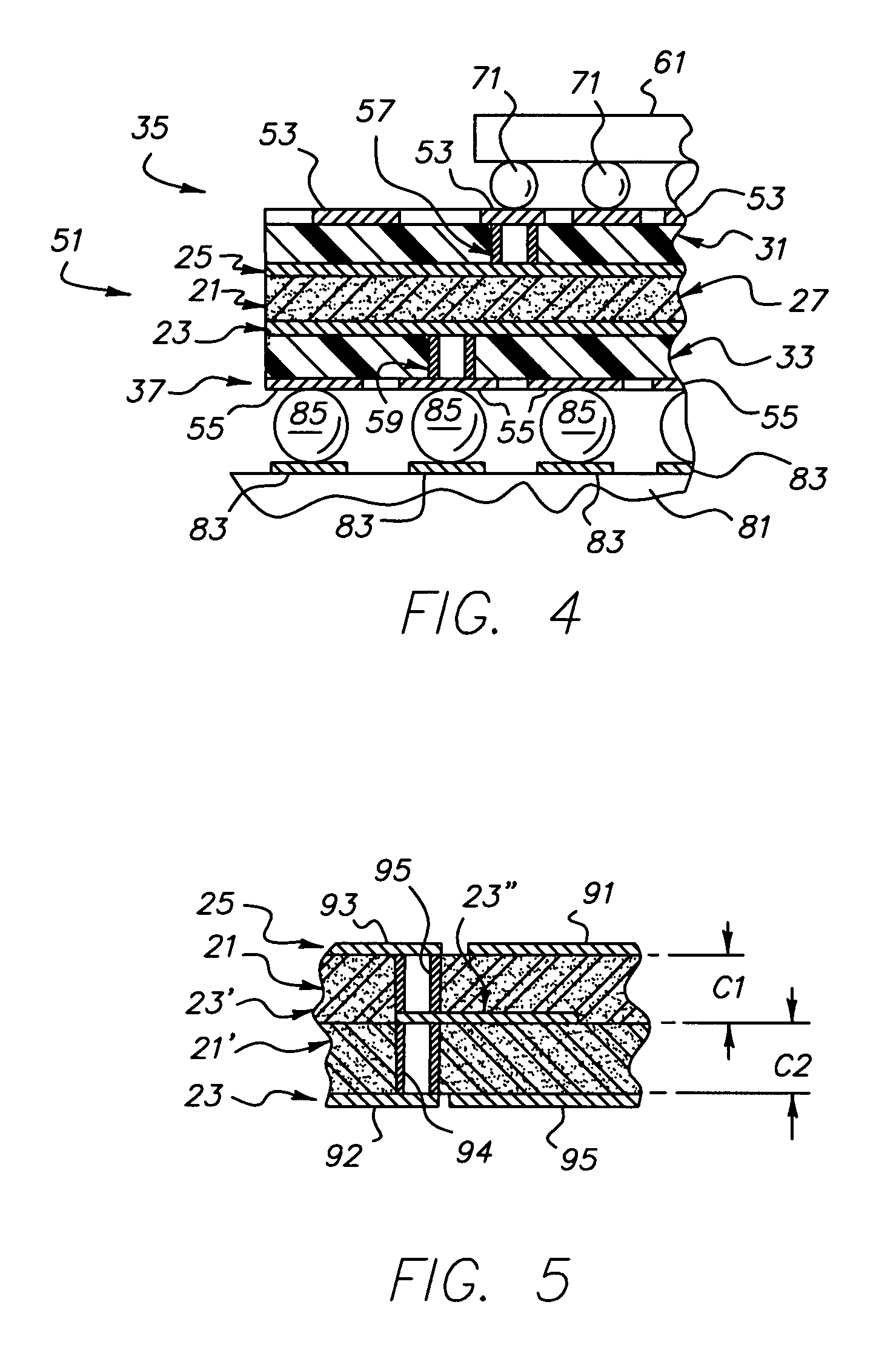Non-flaking capacitor material, capacitive substrate having an internal capacitor therein including said non-flaking capacitor material, and method of making a capacitor member for use in a capacitive substrate
a non-flaking capacitor and capacitive substrate technology, applied in the field of capacitors, can solve the problems of loss of continuity in the internal wall metal deposit, inability to afford the pcb external surface area real estate savings, and fibrous materials occupying a relatively significant portion of the substrate's total volume, so as to improve the circuitized substrate art
- Summary
- Abstract
- Description
- Claims
- Application Information
AI Technical Summary
Benefits of technology
Problems solved by technology
Method used
Image
Examples
example one
[0083] 38.5 grams (gm) of epoxy novolac resin (e.g., one sold under product designation “LZ 8213” by Huntsman, having a business location at 500 Huntsman Way, Salt Lake City, Utah) containing about 35 percent by weight methyl ethyl ketone, and catalyzed with about 0.015 parts per hundred (PPH) of 2-methyl-imidazole and 12.8 gm of a high molecular weight, reactive thermoplastic phenoxy resin (e.g., the aforementioned one sold under the product name “PKHS-40” by the Inchem Corporation) containing 60 percent by weight methyl ethyl ketone, were mixed together with 100 gm of barium titanate (BaTiO3) powder (available from Cabot Corporation, having a business location in Boyertown, Pa.). The barium titanate powder included a mean particle size of 0.12 microns and a surface area of 8.2 m2 / gm. Also mixed in with this composition was 20 gm of methyl ethyl ketone. The composition was ball milled for one day, after which a thin coating of this well dispersed composition was wire-rod coated on ...
example two
[0084] 50 gm of epoxy novolac resin (e.g., the “LZ 8213” above by Huntsman, containing about 35 percent by weight methyl ethyl ketone and catalyzed with about 0.015 PPH of 2-methyl-imidazole, and 19.2 gm of the high molecular weight, reactive thermoplastic phenoxy resin “PKHS-40” (containing 60 percent by weight methyl ethyl ketone), were mixed together with 111 gm of barium titanate (BaTiO3) powder from Cabot Corporation having the same mean particle size and surface area as in Example One (0.12 microns and 8.2 m2 / gm, respectively). Also mixed in with this composition was 20 gm of methyl ethyl ketone. As also in Example One, the composition was ball milled for one day, after which a thin coating of this mixed composition was deposited on a copper substrate (a copper foil) and dried at about 130 degrees C. for three minutes in a standard convection oven. This heating for this time period also served to substantially remove all residual organic solvents. Following removal and cooling...
PUM
| Property | Measurement | Unit |
|---|---|---|
| particle size | aaaaa | aaaaa |
| particle size | aaaaa | aaaaa |
| surface area | aaaaa | aaaaa |
Abstract
Description
Claims
Application Information
 Login to View More
Login to View More - R&D
- Intellectual Property
- Life Sciences
- Materials
- Tech Scout
- Unparalleled Data Quality
- Higher Quality Content
- 60% Fewer Hallucinations
Browse by: Latest US Patents, China's latest patents, Technical Efficacy Thesaurus, Application Domain, Technology Topic, Popular Technical Reports.
© 2025 PatSnap. All rights reserved.Legal|Privacy policy|Modern Slavery Act Transparency Statement|Sitemap|About US| Contact US: help@patsnap.com



